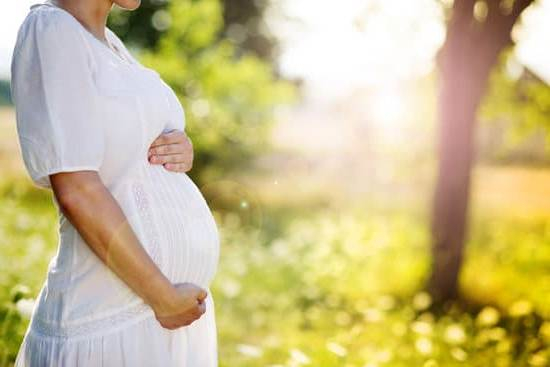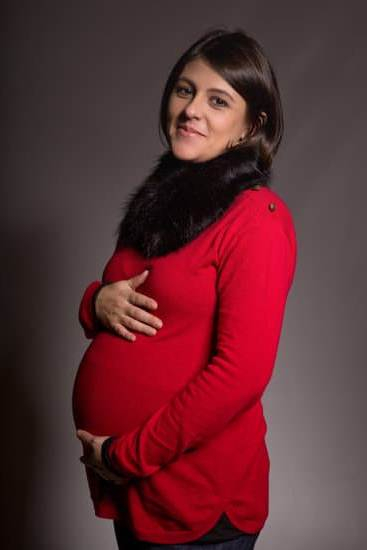Once the egg is released from the ovary, it is swept into the fallopian tube. If sperm are present in the woman’s reproductive tract, the egg may be fertilized as it travels down the tube. Fertilization usually takes place in the upper third of the fallopian tube.
Sperm are very active swimmers and can travel up to 48 hours after ejaculation. The egg, on the other hand, is only viable for about 12-24 hours after ovulation.
If the egg is fertilized, it will begin to divide, and by the fifth day after fertilization it will have become a cluster of about 100 cells. This cluster of cells is called a blastocyst. The blastocyst will continue to grow and divide as it travels down the fallopian tube.
If the egg is not fertilized, it will be eliminated from the body during menstruation.
Female Fertility Age
Female fertility begins to decrease after the age of 30 and decreases more rapidly after the age of 35. The chance of getting pregnant in any given month decreases from about 20% at age 30 to 5% at age 40.
This decrease in fertility is due to a decrease in the number of eggs available as well as a decrease in the quality of the eggs. The number of eggs available begins to decrease at age 30 and decreases more rapidly after age 35.
The quality of the eggs decreases due to a number of factors, including:
•Age-related chromosomal abnormalities
•Damage to the egg from aging or exposure to environmental toxins
•Decreased ability of the egg to be fertilized
The decrease in fertility can also be due to factors such as:
•Smoking
•Excessive alcohol consumption
•Being overweight or obese
•Having irregular periods
If you are trying to conceive and are over the age of 35, it is important to see your doctor for a fertility evaluation. There are a number of things that can be done to increase your chances of getting pregnant, including:
•Fertility treatments, such as IVF
•Surgery to remove polyps or fibroids from the uterus
•Hormone therapy to improve the quality of the eggs
If you are over the age of 35 and have been trying to conceive for 6 months or more, it is also important to see a specialist, such as a reproductive endocrinologist.
Female Fertility Booster Foods
There are many different fertility booster foods that a woman can eat to help improve her chances of getting pregnant. Some of the most common fertility boosters include:
-Fertility boosting herbs such as ginger, basil, and lavender
-Fertility boosting fruits such as avocados, oranges, and strawberries
-Fertility boosting vegetables such as broccoli, carrots, and spinach
-Fertility boosting nuts and seeds such as pumpkin seeds, sunflower seeds, and almonds
-Fertility boosting drinks such as green tea and fertility smoothies
All of these foods are beneficial for boosting fertility because they are high in vitamins, minerals, and antioxidants that are essential for optimal reproductive health. Additionally, many of these foods are also high in fiber, which can help improve gut health and increase fertility.
One of the best ways to boost fertility is to eat a balanced diet that includes plenty of fertility boosting foods. However, it is also important to avoid foods that can harm fertility. Foods that should be avoided include:
-Processed foods
-Sugar
-Artificial sweeteners
-Caffeine
-Alcohol
-Tobacco
These foods can all harm fertility by disrupting hormone balance, causing inflammation, and reducing nutrient absorption. Overall, it is important to eat a healthy diet that includes plenty of fertility boosting foods and avoids foods that can harm fertility.
High Testosterone And Female Fertility
There is a strong correlation between high testosterone and female fertility. In fact, research has shown that women with high levels of testosterone tend to have better reproductive health and are more likely to conceive.
One study, published in the journal Fertility and Sterility, found that women with the highest levels of testosterone were more than twice as likely to conceive as women with the lowest levels of the hormone.
What Causes High Testosterone in Women?
There are a number of factors that can cause high levels of testosterone in women. Some of the most common causes include:
PCOS
Hirsutism
Obesity
Cushing’s Syndrome
How Does High Testosterone Affect Fertility?
High levels of testosterone can have a number of positive effects on fertility. For example, testosterone can:
Improve ovarian function
Increase the number of eggs produced
Improve the quality of eggs
Increase the chance of fertilization
Reduce the risk of miscarriage
What Can You Do to Increase Your Chances of Conceiving if You Have High Testosterone?
If you have high levels of testosterone and are trying to conceive, there are a number of things you can do to increase your chances of success. Some of the most effective strategies include:
1. Lose Weight
If you are overweight or obese, losing weight can help to reduce your levels of testosterone.
2. Exercise
Exercising regularly can help to improve your reproductive health and reduce your levels of testosterone.
3. Take Supplements
There are a number of supplements that can help to improve fertility, including:
Vitamin D
Zinc
Omega-3 fatty acids
4. See a Specialist
If you have high levels of testosterone and are having trouble conceiving, it may be a good idea to see a specialist. A specialist can help you to identify the underlying cause of your high testosterone and recommend appropriate treatment.
Coconut Water Benefits For Female Fertility
Conventional wisdom has long held that coconut water is a great natural drink for pregnant women and new mothers. But what about women who are trying to conceive?
Recent studies suggest that coconut water may help improve fertility in women. Coconut water is a natural source of potassium, which is known to help regulate the female reproductive system. Coconut water also contains antioxidants, which can help protect the eggs and sperm from damage.
Drinking coconut water may not be a guarantee of pregnancy, but it can certainly help improve the chances. If you are trying to conceive, be sure to include coconut water in your diet.

Welcome to my fertility blog. This is a space where I will be sharing my experiences as I navigate through the world of fertility treatments, as well as provide information and resources about fertility and pregnancy.





